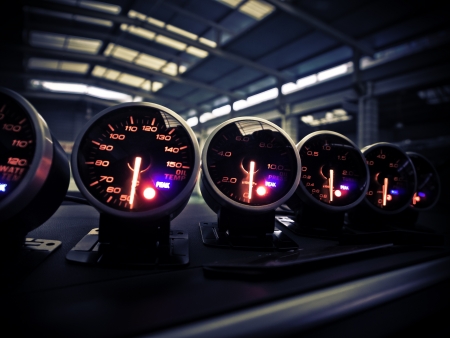Introduction to Premium Fuel vs. Regular Gasoline
When pulling up to an American gas station, you’re often faced with a choice: regular or premium fuel. Many drivers find themselves pausing at the pump, wondering whether paying extra for premium gasoline is really worth it—especially with fluctuating fuel prices and growing interest in sustainability. The difference between these fuels isn’t just about cost; it’s also about octane ratings, engine performance, and environmental impact. This curiosity leads to a common question: does using premium fuel actually improve gas mileage or offer other tangible benefits? In this article, we’ll break down the myths and facts surrounding premium versus regular gasoline, helping you make informed choices that fit both your wallet and your values.
2. Common Myths About Premium Fuel and Gas Mileage
When it comes to choosing fuel at the pump, many American drivers wonder if spending extra on premium fuel is worth it for better gas mileage or a greener drive. Lets bust some of the most popular myths about premium fuel and its supposed benefits:
Myth vs. Fact: Premium Fuel Increases Miles Per Gallon
One of the biggest misconceptions is that premium fuel automatically delivers more miles per gallon (MPG). The truth is, unless your car’s manufacturer specifically recommends or requires premium fuel, using it in a regular engine will not improve your MPG. Most engines designed for regular unleaded gasoline do not have the compression ratios necessary to take advantage of the higher octane in premium fuels.
| Belief | Reality |
|---|---|
| Premium provides more MPG | No benefit for standard engines |
| Premium gives more power | Only in engines designed for high octane |
| Premium is better for the environment | No significant difference over regular |
Myth vs. Fact: Premium Means More Power
Another common myth is that premium fuel delivers more horsepower or acceleration, regardless of what you drive. Actually, modern vehicles with knock sensors adjust performance based on the octane level used. If your vehicle isnt tuned for high-octane gasoline, you won’t see a boost in power—just a lighter wallet.
Myth vs. Fact: Premium Fuel Is Gentler on the Environment
Sustainability-conscious drivers often assume premium fuel is cleaner or produces fewer emissions. While all gasoline must meet strict EPA standards, there’s no evidence that premium unleaded burns cleaner or reduces greenhouse gas emissions compared to regular grades in non-premium-required vehicles. In fact, using more resources than necessary doesn’t support an eco-friendly lifestyle.
The Bottom Line: Choose What Your Vehicle Needs
The best way to support both your wallet and the planet? Follow your owner’s manual recommendations and don’t buy into common myths at the pump.
![]()
3. The Science: How Fuel Octane Really Affects Performance
To truly understand the debate around premium fuel and gas mileage, it’s important to break down what octane ratings actually mean. The octane rating of gasoline is a measure of its resistance to “knocking” or pre-detonation inside your engine. Knocking occurs when the air-fuel mixture ignites prematurely, which can cause inefficiency and potential engine damage over time. In the U.S., regular fuel typically has an octane rating of 87, while premium fuels are rated at 91 or higher.
Most modern engines, especially those designed for the American market, are engineered with sophisticated sensors and control systems that optimize combustion based on the fuel used. For vehicles designed to run on regular unleaded fuel, using premium does not provide any additional benefit in terms of performance or fuel efficiency. These engines simply don’t require the higher knock resistance that premium fuels offer.
However, some high-performance or luxury vehicles are specifically engineered for higher-octane fuel. In these cases, using lower-octane fuel than recommended can lead to reduced power and efficiency, as the engine may have to adjust timing to prevent knocking. Conversely, if your owner’s manual recommends regular fuel, upgrading to premium will not suddenly boost your miles per gallon (MPG) or horsepower. The Environmental Protection Agency (EPA) and automotive experts agree: unless your vehicle specifically requires it, premium gas won’t make your car run better or greener.
In summary, understanding your vehicle’s needs and following manufacturer recommendations is key—not falling for myths about “premium” equaling “better.” By choosing the right fuel, you support both your wallet and sustainability efforts by minimizing unnecessary resource use.
4. Manufacturer Recommendations and Vehicle Requirements
When it comes to fuel choices, U.S. automakers and industry experts offer clear guidance tailored to each vehicle’s engineering. The owner’s manual is your first stop for accurate recommendations. Most vehicles on American roads are designed to run efficiently on regular 87-octane gasoline. Only certain high-performance or luxury models, often with turbocharged or high-compression engines, may require or recommend premium fuel (typically 91 or 93 octane). Using the right fuel isn’t just about engine health; it also impacts emissions and overall efficiency—a big consideration as more drivers seek eco-friendly options.
| Vehicle Type | Recommended Fuel | Premium Required? | Potential Gas Mileage Impact |
|---|---|---|---|
| Standard Sedan/SUV (Most Models) | Regular (87 Octane) | No | No noticeable improvement with premium |
| Turbocharged/Luxury Models | Premium (91-93 Octane) | Sometimes* | Engine protection & optimal performance, not guaranteed MPG boost |
| High-Efficiency/Hybrid Vehicles | Regular (87 Octane) | No | No improvement with premium fuel |
*Check your owner’s manual—some engines “recommend” but do not “require” premium, allowing flexibility without risking damage.
The Bottom Line: Modern American cars, even many newer high-efficiency models, are engineered to maximize gas mileage using regular gasoline. Premium fuel only benefits vehicles specifically designed for higher octane, and using it in a standard engine won’t deliver greener results or better mileage. For sustainability-minded drivers, following manufacturer guidelines means you’ll reduce unnecessary resource use while keeping your car running smoothly.
5. Real-World Impact: Costs, Sustainability, and Environmental Considerations
When it comes to choosing between premium and regular gasoline, many drivers weigh their options based on perceived performance benefits. However, the real-world impact of this choice extends beyond the pump. Financially, premium fuel typically costs 20 to 40 cents more per gallon than regular, which can add up quickly for everyday commuters. For most vehicles designed to run on regular gas, the extra expense rarely translates into better fuel economy or longer engine life, resulting in unnecessary spending without tangible returns.
From a sustainability perspective, using premium fuel in cars that don’t require it does little to reduce your carbon footprint. Both fuel types are derived from non-renewable resources and emit greenhouse gases when burned. While some high-performance engines may run cleaner or slightly more efficiently on premium, the environmental advantage is marginal if your vehicle isn’t specifically engineered for it. Instead, adopting green driving habits—like maintaining proper tire pressure, reducing idling time, and avoiding aggressive acceleration—can have a far greater positive impact on both your wallet and the planet.
Long-term sustainability means thinking beyond individual fill-ups. Opting for regular gasoline when appropriate not only conserves financial resources but also reduces demand for the higher-energy refining process needed to produce premium fuel. Supporting cleaner transportation alternatives, such as carpooling, using public transit, or investing in hybrid and electric vehicles, amplifies your contribution to environmental stewardship. Ultimately, making mindful choices about how you drive—and what you put in your tank—aligns with both cost savings and a greener future for all.
6. Going the Extra Mile: Tips for Improving Gas Mileage—No Matter the Fuel
Whether you fill up with regular or premium gasoline, your everyday driving habits and maintenance routines have a significant impact on fuel efficiency and your environmental footprint. The truth is, choosing the right fuel grade for your car is only part of the equation. Here are some actionable tips to help American drivers boost their miles per gallon (MPG) and tread more lightly on the planet:
Keep Your Tires Properly Inflated
Under-inflated tires create more rolling resistance, which means your engine has to work harder—and burn more fuel. Check tire pressure at least once a month and before long road trips. Refer to the sticker inside your driver’s side door or your owner’s manual for recommended PSI.
Drive Smoothly and Avoid Aggressive Maneuvers
Rapid acceleration, hard braking, and speeding can significantly decrease gas mileage. Instead, accelerate gently, anticipate traffic flow, and use cruise control on highways to maintain a steady speed whenever possible.
Lighten the Load
Carrying extra weight in your trunk or using roof racks increases drag and reduces fuel economy. Remove unnecessary items from your vehicle and take off roof carriers when not in use.
Limit Idling
Idling gets zero miles per gallon. If you expect to be stopped for more than a minute or two—like waiting to pick up kids from school—turn off your engine when it’s safe to do so.
Stay On Top of Regular Maintenance
A well-maintained vehicle runs more efficiently. Change air filters as recommended, keep spark plugs fresh, and ensure fluids are topped up. Following your manufacturer’s service schedule helps maximize MPG whether you’re burning regular or premium fuel.
Consider Carpooling and Trip Planning
Combine errands to minimize cold starts (which use more fuel) and consider ride-sharing or carpooling when possible. Fewer cars on the road means less congestion and lower collective emissions—a win for everyone.
Sustainable Driving Is Within Reach
No matter what octane you choose at the pump, these simple steps help you save money, extend your car’s life, and contribute to cleaner air across America. By making small changes today, we can all drive toward a greener tomorrow—one mile at a time.


